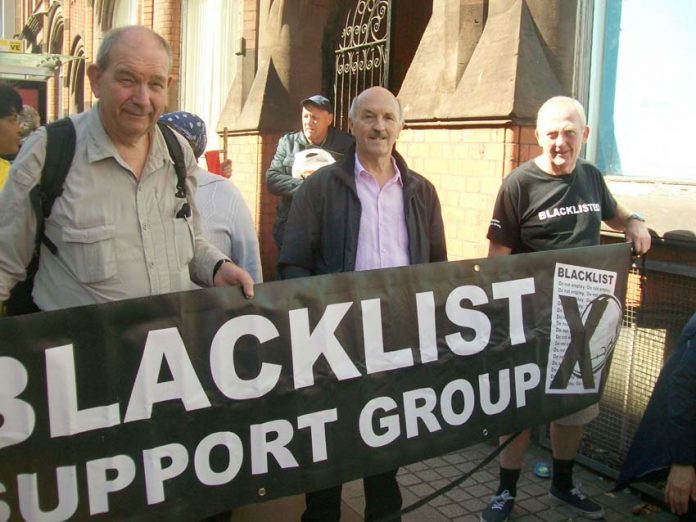
GMB, the union for construction workers, has described the Metropolitan Police’s admission of their role in the blacklisting scandal as a constitutional crisis which needs a public inquiry. Scotland Yard today admitted Special Branch officers passed information to a controversial network that blacklisted construction workers.
GMB took the first blacklisting case to the High Court in November 2013 and has spearheaded the campaign right from the start. The union was instrumental in netting £75 million for 771 claimants, including legal costs on both sides estimated at £25m.
Justin Bowden, GMB National Secretary, said: ‘The secret blacklisting of 3,213 construction workers and environmentalists was the greatest employment scandal in 50 years. ‘When in 2013 GMB launched the first High Court claims on behalf of those blacklisted, there were many in the establishment who said we were paranoid conspiracy theorists.
‘Admission by the police that they were directly and deeply involved in denying ordinary working people – who in many cases had done little more than raise health and safety concerns – from work and the chance to support themselves and their families is a constitutional crisis that can only be properly addressed by a full, independent public inquiry as GMB has long maintained. ‘This admission too raises some serious questions regarding other connected cases.’
• Unite is considering whether to launch further legal action on behalf of its members who were blacklisted, following yesterday’s admission by the Metropolitan Police, that police officers supplied information that appeared in the files of blacklisting victims. Unite has launched fresh High Court action on behalf of over 70 members who were blacklisted by the Consulting Association. These cases are for breach of privacy, defamation and for Data Protection Act offences.
In the light of the police’s admission that they were involved in providing information used to blacklist workers, Unite will now be investigating whether it is appropriate to pursue the police in legal action. In the wake of the Metropolitan Police’s admission of colluding with blacklisters Unite has also renewed its call for a full public inquiry into blacklisting.
There are also serious concerns that the Metropolitan Police concluded in 2016 that their officers had been involved in passing on information used to blacklist workers but suppressed their admission of guilt for two years. This meant the information was not available during the previous High Court case which concluded in 2016, with hundreds of blacklisted workers receiving substantial compensation for having their lives ruined.
Unite assistant general secretary Gail Cartmail said: ‘This is a major breakthrough. The police have finally been forced to admit what we already knew that they were knowingly and actively involved in the blacklisting of construction workers. It is disgraceful that they have chosen to sit on this admission of guilt for so long.
‘This admission is yet another reason why we need a full public inquiry into blacklisting. It is also why it is absolutely essential that the inquiry into undercover policing led by Judge Mitting is entirely transparent. That inquiry’s primary focus must be about exposing the abuses that undercover police officers were responsible for, rather than protecting the identities of the police officers involved.’